Understanding the Journey of Adults with Severe Autism
Severely autistic adults face unique challenges that extend long after childhood, impacting their health, independence, and social integration. As awareness and diagnosis improve, it is crucial to explore their long-term experiences, the support systems available, and societal perceptions that shape their futures.
The Long-Term Challenges of Severe Autism
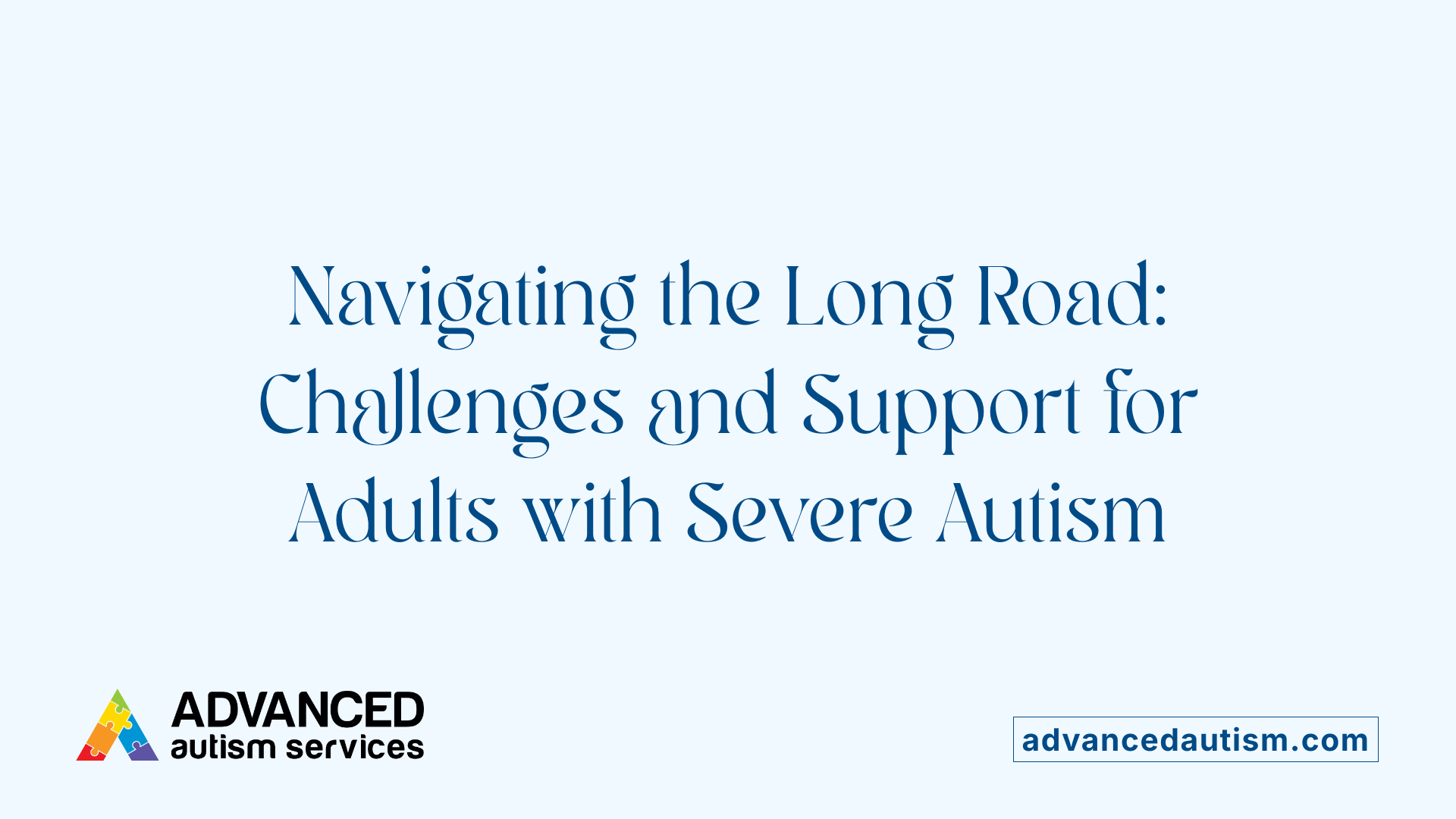
What are the long-term challenges faced by severely autistic adults?
Severely autistic adults encounter a wide range of ongoing difficulties that affect their daily lives and overall well-being. These challenges include persistent communication difficulties, where many individuals are nonverbal or have limited speech, making it hard to express needs, desires, or emotions.
Challenging behaviors, such as aggression, self-injury, or meltdowns, can be triggered by sensory overload, routine disruptions, or heightened emotional states. These behaviors are often misunderstood, leading to social stigma and barriers in community integration.
Sensory sensitivities add another layer of complexity, with many experiencing heightened responses to sounds, lights, textures, or other stimuli. Sensory overload can lead to distress, anxiety, or even behavioral crises.
Building and maintaining relationships presents significant obstacles. Difficulties with social cues, joint attention, and understanding others' perspectives often limit the ability to form genuine friendships or romantic partnerships.
Long-term health issues frequently co-occur, including gastrointestinal disorders, epilepsy, and mental health conditions like anxiety and depression. These health concerns, combined with chronic sleep or sensory problems, impair quality of life and can reduce life expectancy.
Many adults remain dependent on family and caregivers, particularly after transitioning out of childhood support systems—a phase often referred to as the 'service cliff.' Social isolation is common, and employment opportunities are limited due to societal barriers and discrimination.
Despite early intervention and specialized support, disparities in social participation, independence, and employment persist. The prognosis varies widely depending on individual needs, available resources, and access to healthcare.
Addressing these long-term challenges requires comprehensive, tailored support systems that promote independence, health, and social integration, ensuring that adults with severe autism can lead meaningful lives.
Transitioning from Childhood to Adulthood
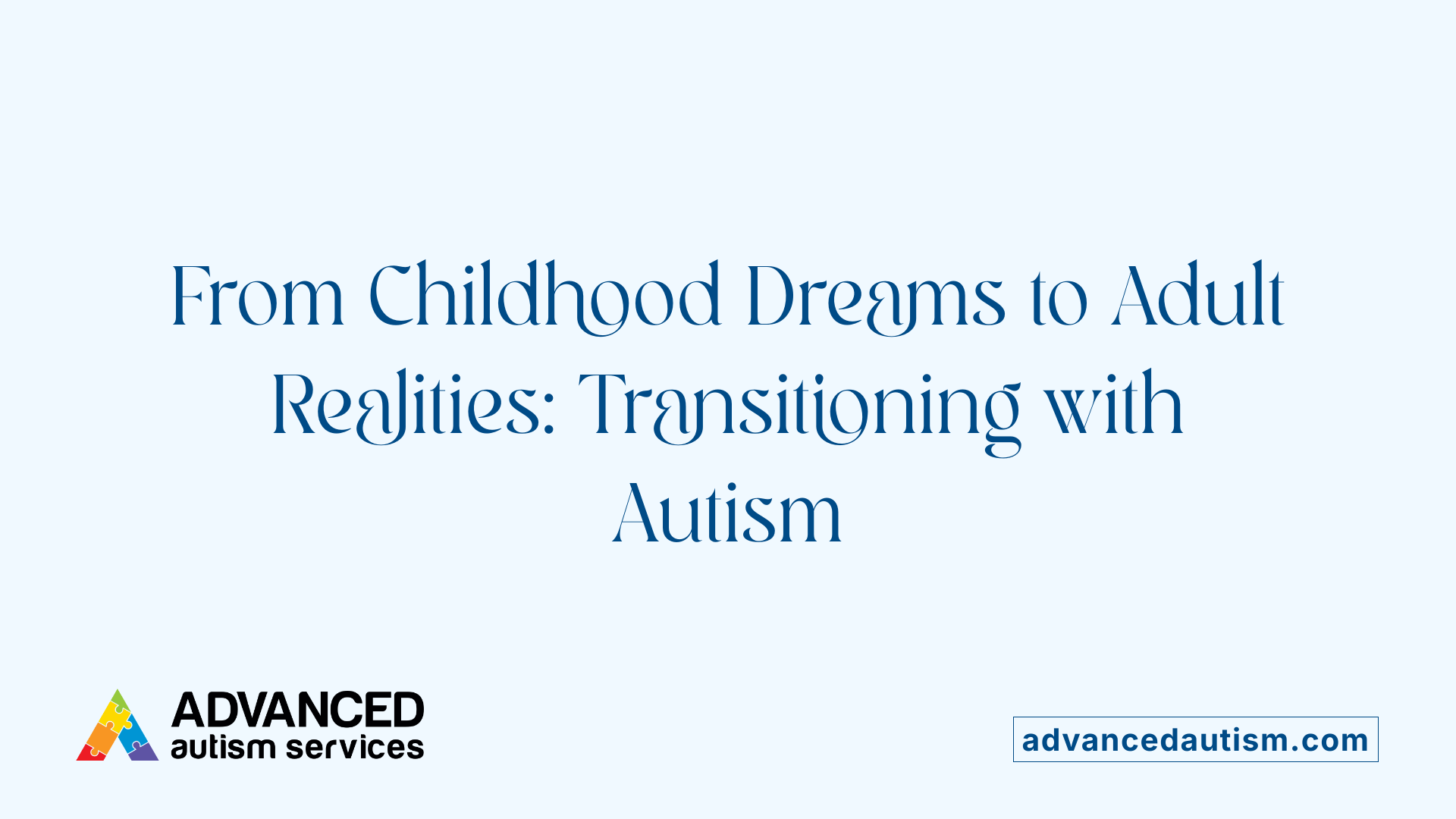
How do individuals with severe autism transition from childhood to adulthood?
Moving from childhood into adult life presents many unique challenges for individuals with severe autism. Transition planning should begin early, ideally around ages 12 to 14, to ensure a smooth changeover.
During this period, families, educators, and healthcare providers collaborate to develop detailed transition plans. These are often outlined through Individualized Education Programs (IEPs) that set goals for healthcare, education, employment, and living arrangements.
Tailored interventions are essential to address specific needs, focusing especially on developing social skills and independence. Supported employment programs, college pathways, and community engagement initiatives are beneficial options.
Family support plays a critical role throughout the transition. Consistent encouragement, advocacy, and community connections help address societal acceptance, communication barriers, and cognitive challenges.
Customizing support based on individual strengths and preferences allows for promoting greater independence and social integration. This personalized approach helps prepare adults with severe autism for fulfilling, independent lives, emphasizing their capabilities and future aspirations.
Early and proactive planning, combined with ongoing support, can significantly enhance the transition process, enabling autistic adults to navigate life’s challenges confidently.
Housing and Living Arrangements for Autistic Adults
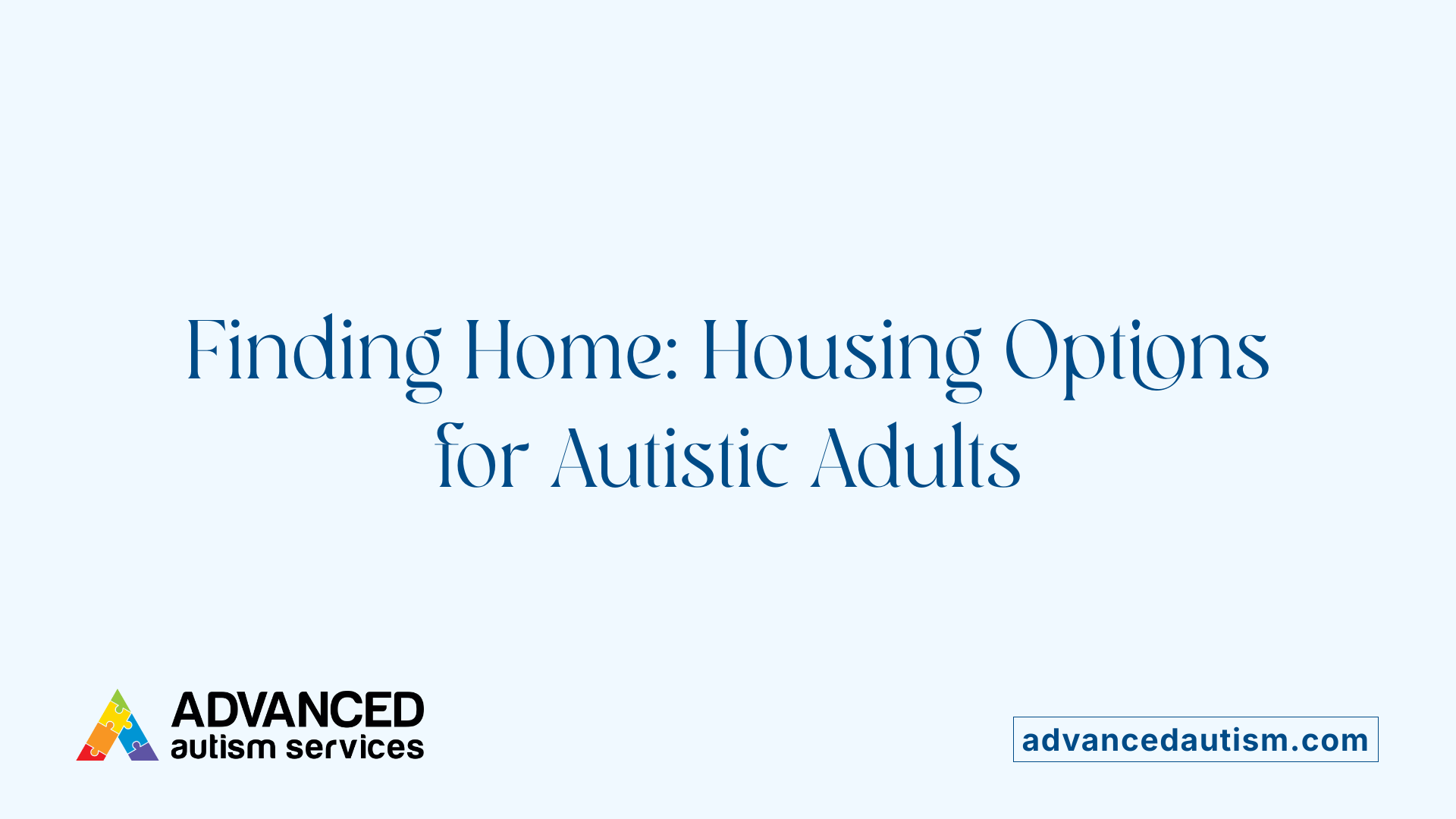
What are the common living arrangements and housing options for autistic adults?
Autistic adults have a range of housing choices tailored to their individual needs, preferences, and levels of independence. These options include living independently in their own apartments or houses, supported living environments, group homes, foster homes, community-based cooperative housing, farmstead communities, and assisted living facilities.
Many adults with autism manage their daily supports within supported living settings, which provide personalized assistance while promoting independence. For those needing more supervision and structured routines, supervised group homes or residential care facilities are options. Foster homes and specialized community living arrangements also serve as supportive environments for transitioning into adulthood.
Access to suitable housing remains a significant challenge, with only around 7% of autistic adults currently supported through community-based services. To improve housing stability, programs such as Section 811 offer rental assistance to low-income individuals, making housing more affordable.
Organizations like the Autism Housing Network and Autism Speaks provide valuable resources and guidance. These organizations help families and individuals find inclusive, affordable, and supportive housing options that respect individual needs and preferences. They also advocate for policies that expand access to community-based housing, fostering greater independence and community integration for autistic adults.
Overall, the landscape of housing options is evolving, aiming to balance independence with support, and to promote a better quality of life for adults with autism.
Support Systems and Services Tailored for Autistic Adults
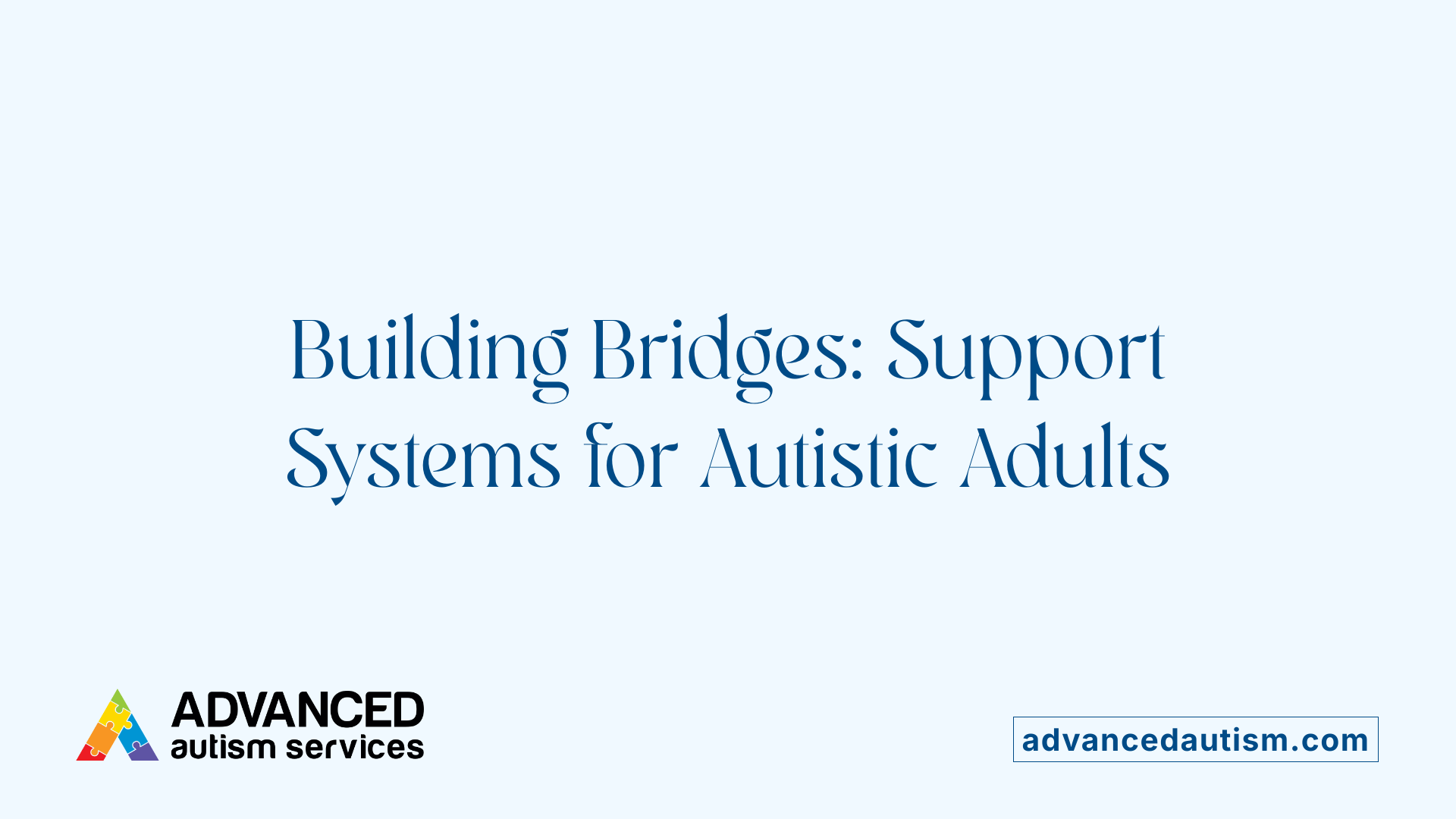
What support systems and services are available for autistic adults?
Autistic adults benefit from a variety of support systems and services that aim to promote independence, social integration, and overall quality of life. Healthcare access remains a significant challenge, often hindered by shortages of specialists, financial barriers, and geographic limitations. Advocates recommend increasing the number of healthcare professionals trained in autism-specific needs and implementing policies to reduce costs.
Employment opportunities tailored to individual needs are vital. Supported employment programs, vocational rehabilitation, and job coaching help autistic adults develop skills and find suitable workplaces. These programs provide ongoing support, facilitating job retention and social participation.
Housing choices are expanding beyond traditional group homes. Supportive living arrangements such as shared housing, individual supported living, and family-based setups allow greater person-centered care. Organizations like the National Autistic Society in the UK offer residential services that operate 24/7, emphasizing personalized, evidence-based assessments to meet diverse needs.
Community engagement is fostered through support groups and organizations like Autism Speaks and the Autism Society of North Carolina. These groups offer social networks, peer support, and community activities, helping autistic adults and their families connect and share resources.
Assistive technologies and therapies further support skill development and communication. Speech therapy, occupational therapy, and the use of augmentative and alternative communication (AAC) tools aid non-verbal individuals. Day programs such as IGNITE focus on social skills, life skills, and vocational training.
By combining healthcare, employment, housing, community involvement, and technological support, these systems create a comprehensive support ecosystem. The goal is to enable autistic adults to live fulfilling, independent lives with access to the resources they need.
Managing Mental Health and Challenging Behaviors
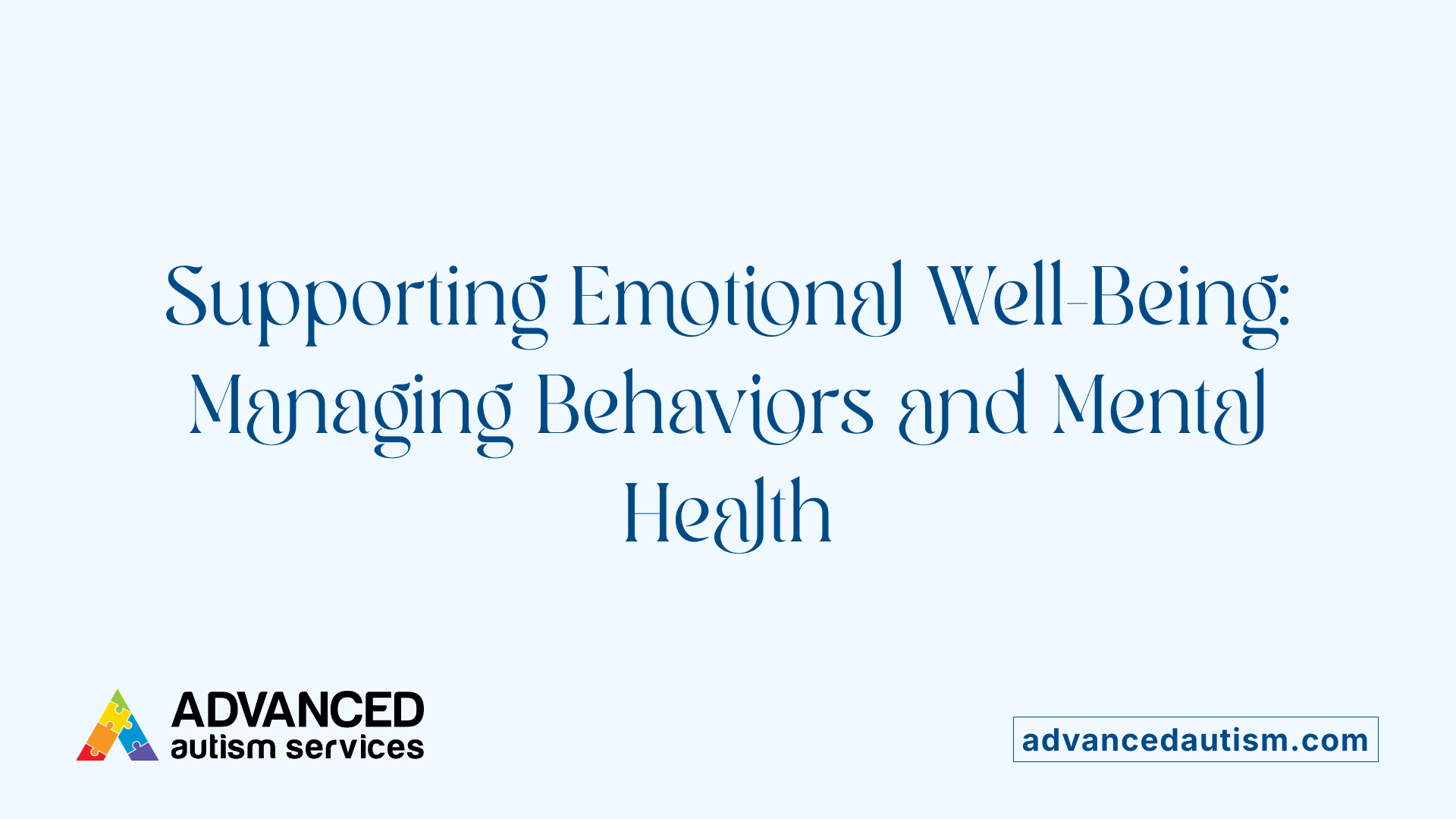
How can mental health issues and behaviors like meltdowns be managed in autistic adults?
Addressing mental health challenges and behaviors such as meltdowns in autistic adults requires a comprehensive, tailored approach. Evidence-based behavioral therapies, such as cognitive-behavioral therapy (CBT), have been adapted with visual supports and social stories to better fit the learning style of autistic individuals. These therapies help reduce anxiety, depression, and maladaptive behaviors.
In addition to therapy, coping strategies and environmental adjustments play a vital role. Creating sensory-friendly environments, offering quiet spaces, and implementing predictable routines can minimize triggers for meltdowns. Recognizing early signs of distress allows caregivers and support staff to intervene proactively.
Medical interventions, such as medication, are sometimes necessary for managing intense anxiety or compulsions. These should be used with caution, under the supervision of healthcare professionals, and with continuous monitoring to avoid side effects.
Training caregivers and support staff is equally important. Educating them about autism-specific behaviors, crisis management, and emotional regulation techniques empowers them to provide effective support. Including autistic adults in their own care planning fosters a sense of control and promotes better outcomes.
Overall, managing these challenges involves a mix of evidence-based therapies, environmental modifications, careful medical management, and well-trained support networks. This integrated approach helps autistic adults achieve greater emotional stability and improve their quality of life.
The Impact of Society's Perceptions on Autistic Adults
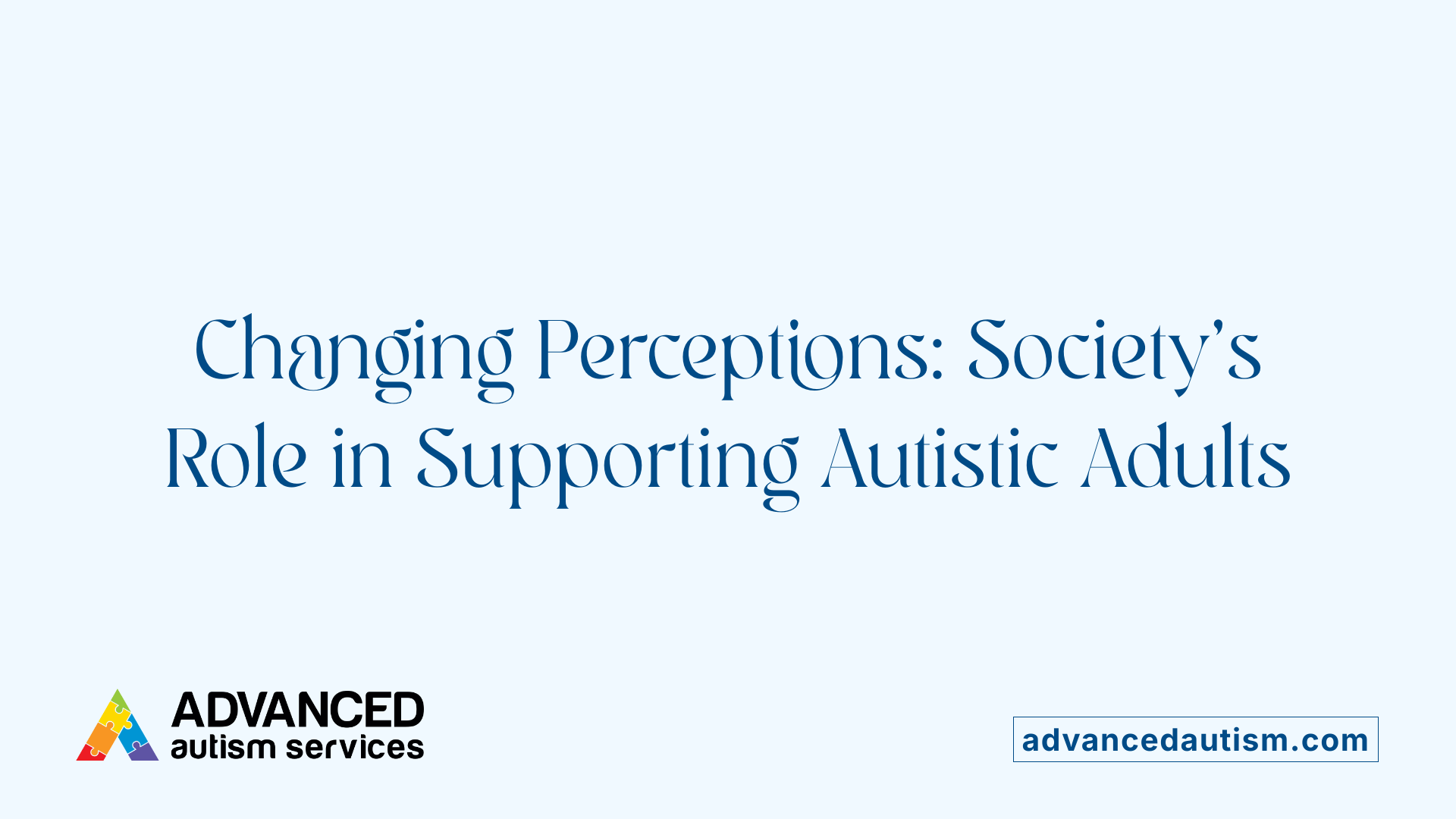
How do societal perceptions and awareness affect severely autistic adults?
Society's views and understanding of autism play a crucial role in shaping the lives of severely autistic adults. When perceptions are negative or based on misconceptions, they often lead to social rejection, prejudice, and discrimination. This can limit opportunities in employment, restrict access to suitable housing, and create barriers to healthcare.
On the other hand, increased awareness and positive representation of autism in media promote acceptance and understanding. Such efforts foster neurodiversity, encouraging communities to see autism as a natural variation rather than a defect. This shift in attitudes improves social inclusion and supports the development of services tailored to individual needs.
Community attitudes directly influence the availability and quality of support systems. Campaigns that educate the public about autism help dispel myths and reduce stigma. As a result, adults with severe autism experience greater societal acceptance, which can lead to better employment prospects, more appropriate housing options, and improved healthcare access.
Autistic adults often rely on the community’s perception to navigate daily life. When communities are more accepting, adults are more likely to participate fully in social activities, build meaningful relationships, and live more independent lives. Conversely, stigma breeds isolation and can significantly impact mental health, exacerbating existing challenges.
Overall, societal perceptions hold substantial power in either hindering or supporting the integration of severely autistic adults into community life. Efforts to increase awareness, promote neurodiversity, and challenge stereotypes are vital to fostering an inclusive environment where all individuals can thrive.
Health, Mortality, and Lifespan Considerations
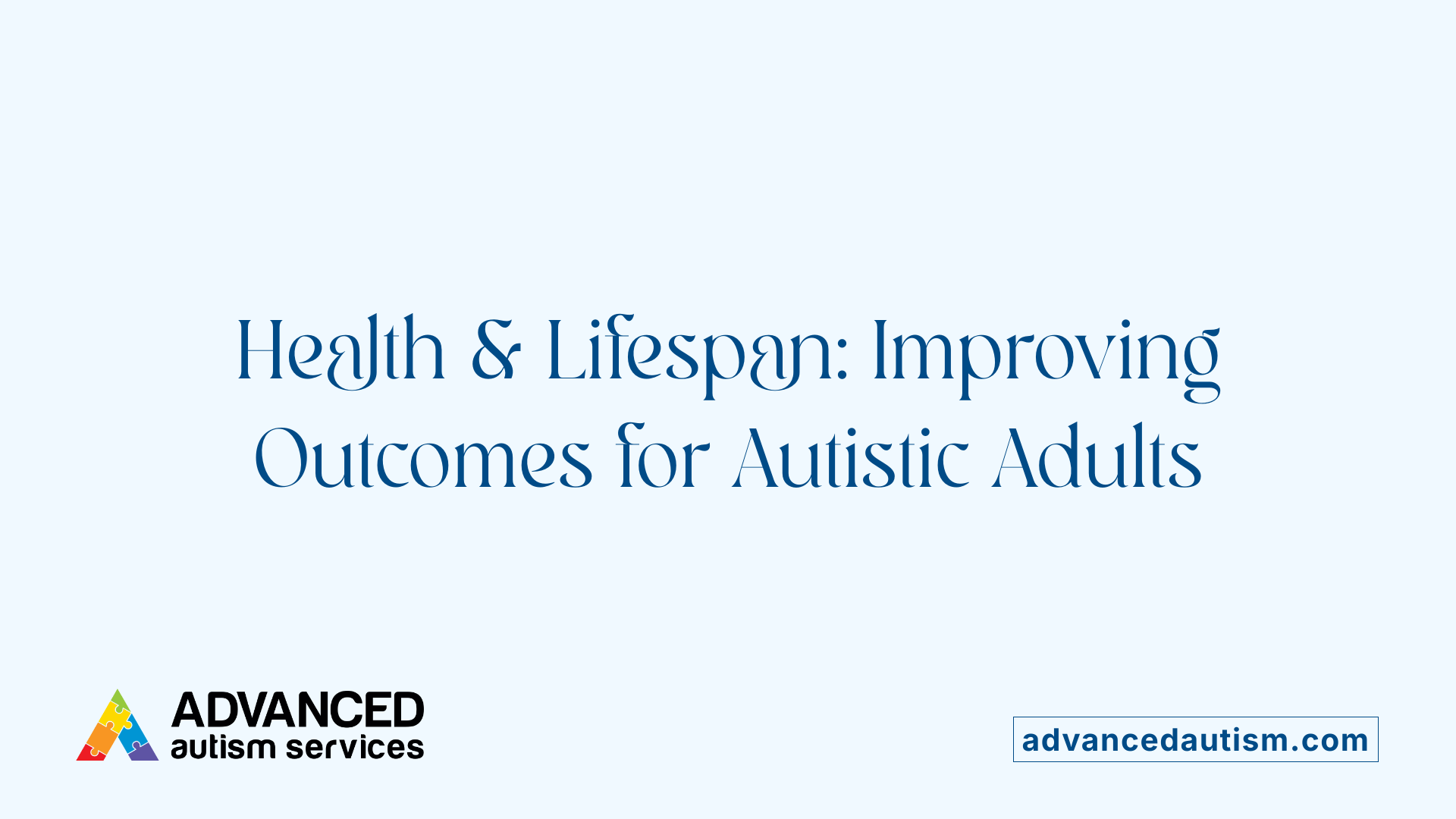
What are the healthcare access, health outcomes, and life expectancy considerations for autistic adults?
Autistic adults face numerous challenges related to healthcare, including difficulties in communicating symptoms effectively and sensory sensitivities that make clinical environments overwhelming. Additionally, healthcare providers often lack specialized training in autism, which can lead to misunderstandings or inadequate care.
These barriers contribute to poorer health outcomes. Autistic adults are at increased risk of chronic conditions such as epilepsy, gastrointestinal problems, anxiety, and depression. Their health disparities are compounded by obstacles in accessing preventive services and timely medical intervention.
Research indicates that the average life expectancy of autistic adults ranges from 39 to 58 years, significantly lower than the general population’s average, which exceeds 70 years in many countries. Several factors influence lifespan, including the severity of autism, presence of co-occurring health conditions, and socioeconomic factors like access to healthcare and social support.
Efforts to improve healthcare access are crucial. Creating sensory-friendly clinics, training healthcare providers in autism-specific communication techniques, and implementing tailored healthcare strategies can help reduce disparities.
Improving these aspects will not only enhance health outcomes but also extend the lifespan of autistic adults, promoting better quality of life and more inclusive healthcare systems.
| Aspect | Challenges | Improvement Strategies |
|---|---|---|
| Healthcare Access | Communication barriers, sensory overload, provider inexperience | Autism-friendly clinics, provider autism training, tailored communication tools |
| Health Outcomes | Chronic physical and mental health issues, delayed treatment | Regular screenings, mental health support, specialized care programs |
| Life Expectancy | Reduced due to co-occurring conditions, lifestyle factors | Early diagnosis, comprehensive health management, supportive services |
| Risk Factors | Severity of autism, co-existing health conditions, socioeconomic barriers | Targeted interventions, community support, socioeconomic assistance |
Future Planning and Legal/Financial Arrangements
What are the future planning, legal, and financial considerations for the long-term care of autistic adults?
Planning for the future of autistic adults involves a combination of legal, financial, and personal support measures. Legal considerations include setting up guardianship or supported decision-making arrangements, which ensure that individuals receive necessary support while respecting their independence. Power of attorney for healthcare and finances allows trusted individuals to make critical decisions when needed.
Estate planning is also essential. Creating a detailed will and establishing special needs trusts helps protect assets without jeopardizing eligibility for public assistance programs. These trusts are designed to hold resources securely and exclusively for the individual’s benefit.
Financial planning tools such as Supplemental Security Income (SSI) and ABLE accounts provide long-term financial security. SSI offers ongoing income support, while ABLE accounts enable families to save money tax-free for qualified expenses.
To create a comprehensive life plan, families and caregivers often develop personalized documents like letters of intent, life-plan binders, and regularly review and update these plans. These documents clarify personal goals, preferred living arrangements, employment, and social participation.
Involving the individual in these decision-making processes, where possible, promotes autonomy and respect. Collaboration with legal experts, service providers, and healthcare professionals ensures that the support system remains consistent, adaptable, and capable of addressing evolving needs.
Ultimately, well-structured long-term planning helps safeguard the well-being, independence, and quality of life for autistic adults, providing peace of mind for families and caregivers.
The Path Forward for Adults with Severe Autism
Addressing the multifaceted needs of severely autistic adults requires a societal shift towards greater awareness, inclusive support systems, and comprehensive planning. As research advances and support services expand, there remains a critical need to improve healthcare access, foster societal acceptance, and ensure that each individual can lead a life marked by dignity, independence, and community integration. Collaboration among families, clinicians, policymakers, and advocacy groups is essential to build a future where severe autism does not define limitations but rather highlights opportunities for thriving.
References
- What Happens To Severely Autistic Adults? - Astra ABA
- Adult residential services - National Autistic Society
- When children with autism become adults - PMC
- What Happens to Autistic Adults When Parents Die? - All Star ABA
- Autism Life Expectancy | Autism Resources - Songbird Therapy
- Changing from child to adult care if your child is autistic - NHS
- Autistic adults with complex needs | Autism Awareness Australia
- Autism Life Expectancy: What Parents Need to Know [2025]



